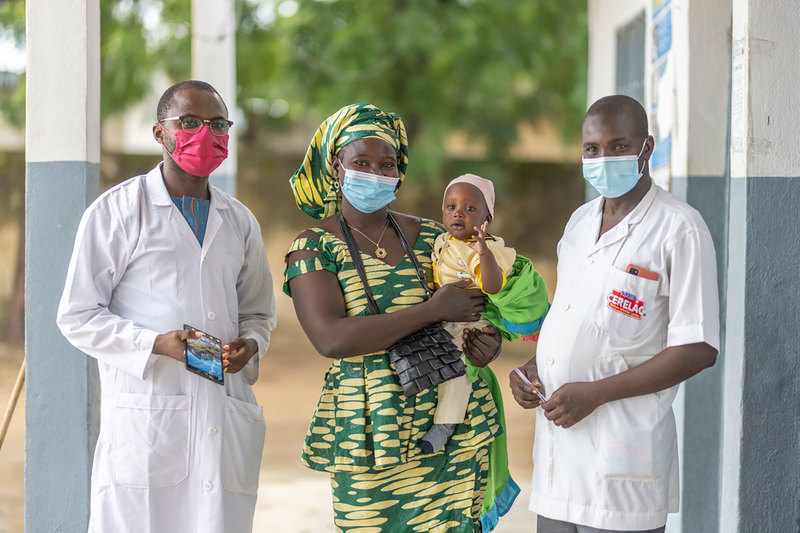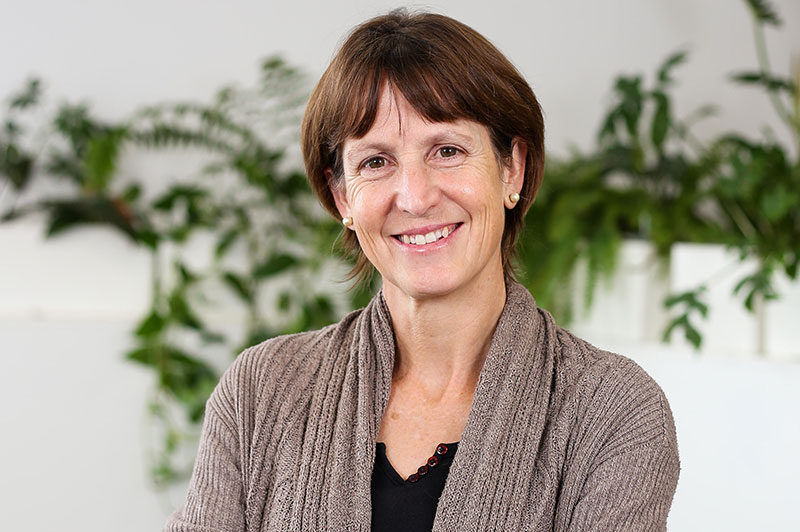Infrastructure and innovation for a healthy Africa
22 March 2024 | Story Laura Rawden. Read time 8 min.
Highlighting the globally competitive excellence at the University of Cape Town (UCT), the South African Research Chairs Initiative (SARChI) researchers developed leading-edge infrastructure and innovation to address the urgent health challenges faced on the continent. This work falls under the theme “Building a healthy Africa”, one of the five research focal areas devised under UCT’s Vision 2030.
Recognising leadership in South Africa’s research excellence, the SARChI chairs have been funded for 15 years by the national Department of Science and Innovation (DSI) and the National Research Foundation (NRF).
Over that time, they have honoured that trust and funding by integrating science and technology to improve Africa’s disease outcomes with better detection and treatment.
Professor Kevin Naidoo is pushing the boundaries of technology and health research. As SARChI chair in Scientific Computing, he has merged the worlds of computing, chemistry and biology to develop novel tools with applications for pressing disease challenges.

“My contribution to science has been to ground scientific software development in the fundamentals of chemical and physical science rigour with a consciously practical intention.”
Leading the Scientific Computing Research Unit at UCT, Professor Naidoo has enabled the development of machine learning software tools like the Denoising Autoencoder Self Organism Map (DASOM) to sort through noisy or imperfect genomic data.
Naidoo further led the design and development of the Growing Hierarchical Self Organising Representation Map (GHSORM), which can discover disease subclasses from noisy tissue and blood sample genome data.
These computational tools have implications for using big data, or vast and complex quantities of information, in designing personalised treatments for patients. They have been used in his ground-breaking research into how different cancers work.
“We aim to develop a system of affordable breast and other cancer biomarkers that will not only facilitate accurate diagnoses and assist with personalised treatment, but provide non-invasive early detection.”
By analysing tumour gene data for common cancers, his work has revealed that each cancer has a unique glycosyltransferase (GT) enzyme expression, which refers to the way in which it builds complex carbohydrates. The patterns in cancer are unique enough to be used to detect the specific subtypes of a cancer, including, for example, the ‘triple negative’ type of breast cancer.
Enabling early detection, the work can help clinicians tailor a patient’s treatment regimen. It can also contribute to improved life expectancy, which is especially relevant in Africa where the burden of disease is high.
Naidoo’s work is currently informing multidisciplinary work to develop a breast cancer biomarker to aid in early detection. The work has already passed a proof-of-concept clinical trial and led to a phase 1 clinical trial.
“We aim to develop a system of affordable breast and other cancer biomarkers that will not only facilitate accurate diagnoses and assist with personalised treatment, but provide non-invasive early detection.”

Early detection is pivotal for improving patient outcomes in diseases that are particularly prevalent in Africa. Spearheading the development of talent, infrastructure and research that can enable this is Professor Jonathan Blackburn, the deputy director of the Institute of Infectious Disease and Molecular Medicine (IDM).
Holding the SARChI chair in Applied Proteomics and Chemical Biology, Professor Blackburn innovatively combines protein and antibody research to identify and validate clinically relevant biomarkers of disease. The result is a new way to study and potentially diagnose diseases like tuberculosis (TB), cancer and autoimmune disorders.
“By studying disease states at the protein level, my work sheds important new light on mechanisms of disease and identifies novel biomarkers of disease, thereby enabling precision medicine interventions,” Blackburn said.
He also applies this protein lens to the gut microbiome. Zeroing in on proteins being produced in the gut, Blackburn has developed new methods to better understand how naturally occurring bacteria interact functionally with host healthy immune systems and in disease states.
“Most diseases are more easily treated if picked up early. Our work therefore focuses on early-stage diagnosis so that clinicians can catch it early, treat it and manage better outcomes.”
His research has been used in interdisciplinary collaborations with important results. With colleagues at the UCT Centre for Lung Infection and Immunity (CLII), he identified urinary biomarkers that are now being developed into a urine-based screening test for TB. Importantly, this test can be used in resource-limited settings.
Blackburn’s work is of particular relevance locally. According to the World Health Organization (WHO), over 25% of all TB deaths occur in the African region, where communities face a disparity in resources and that enables ineffective disease prevention and detection.
“Most diseases are more easily treated if picked up early. Our work therefore focuses on early-stage diagnosis so that clinicians can catch it early, treat it and manage better outcomes,” he said.

As SARChI chair in Brain Imaging, Professor Ernesta Meintjes’ work has generated some of the most comprehensive neuroimaging studies in the world on brain development in children exposed to early-life insults or damage.
“We developed motion-robust magnetic resonance imaging (MRI) scanning sequences that greatly increase scanning success in paediatric populations, enabling large-scale studies of brain development in at-risk local populations,” said Professor Meintjes, the director of MRI: Cape Universities Body Imaging Centre at the Neuroscience Institute at UCT.
MRI scans are highly sensitive to motion, so Meintjes and her collaborators have developed techniques that track and correct motion in real time in newborns and children who may not be able to lie still.
Applying these techniques, her group demonstrated in a pilot clinical trial that administering choline vitamin supplements to heavy-drinking pregnant women reduces the damaging effects of prenatal alcohol exposure on the brains of their infants.
“Better understanding the consequences of these risk factors for brain development will allow targeted and early interventions.”
Meintjes has also used MRI scans to look at patterns in brain development in children living with HIV who began antiretroviral therapy (ART) at a young age. She has also studied the brains of children who are HIV negative but exposed to both the virus and ARTs while in their mother’s womb.
According to her, the country has the largest absolute number of people living with HIV, with a growing population of children who are HIV-exposed and uninfected. There are also high-risk communities where rates of foetal alcohol syndrome (FAS) are among the highest in the world. These risk factors impact children’s abilities to thrive and reach their full potential.
“Better understanding the consequences of these risk factors for brain development will allow targeted and early interventions,” said Meintjes. “Given that Africa has the youngest population worldwide, addressing these risk factors is critical towards ensuring healthy and sustainable development.”
Read more about the research focal areas.
 This work is licensed under a Creative Commons Attribution-NoDerivatives 4.0 International License.
This work is licensed under a Creative Commons Attribution-NoDerivatives 4.0 International License.
Please view the republishing articles page for more information.
Research & innovation





































